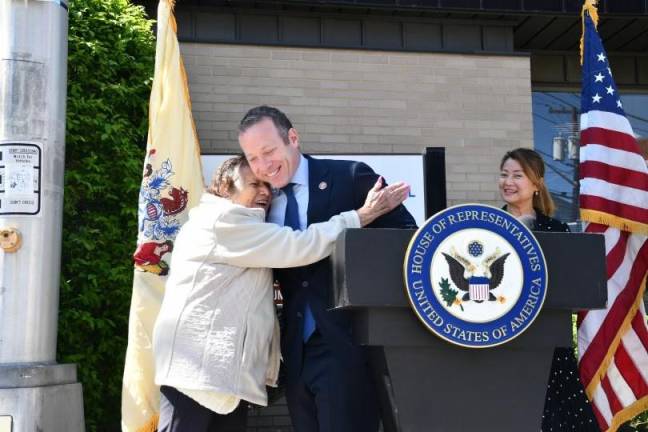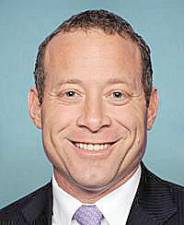Gottheimer announces new senior security strategy to combat robocalls
Telecommunications. The House of Representatives is set to vote on a bipartisan bill that aims to help end financial scams targeting seniors, including stopping the unending stream of robocalls and unwanted texts.

U.S. Congressman Josh Gottheimer (NJ-5) announced on Monday his new Senior Security Strategy, to help end financial scams targeting seniors, including stopping the unending stream of robocalls and unwanted texts.
Senior scams, including harassing robocalls and phone calls impersonating the government, cost older Americans nearly $3 billion a year and cause harm and anxiety for our seniors.
Last year, about seven million Americans reported being a victim of financial exploitation. In April 2022, Americans received more than 3.9 billion robocalls, keeping 2022 on pace to hit 48 billion robocalls for the full year and averaging roughly 4 billion robocalls a month.
Since 2013, more than 16,000 taxpayers have lost more than $83 million total from scammers impersonating IRS officials.
Gottheimer’s Senior Security Strategy takes three key steps to help protect older Americans in New Jersey and nationwide from getting scammed out of their hard-earned money.
Gottheimer’s Senior Security Strategy:
This week, the U.S. House of Representatives is set to vote on Gottheimer’s bipartisan legislation, the Empowering States to Protect Seniors from Bad Actors Act. The bill will create a new Senior Investor Protection Grant Program to support state enforcement agencies and task forces charged with protecting and educating seniors on financial fraud. They will be able to hire additional investigative staff, invest in equipment and training for law enforcement, and educate seniors on financial scams. Senators Chris Van Hollen, Tim Scott, Raphael Warnock, and Cynthia Lummis have already introduced the bipartisan companion bill in the Senate.
Gottheimer’s new legislation set for a vote this week builds on his bipartisan, bicameral legislation, the Senior Security Act, which passed the House last year. The Senior Security Act will create a Senior Investor Taskforce at the Securities and Exchange Commission (SEC) that will exclusively focus on how seniors are being targeted by fraudsters who seek to take financial advantage of them. Every two years, the Taskforce will submit a report to Congress outlining trends and innovations — like robocalls and voice spoofing — that are impacting senior investors, helping us stay ahead of changes in financial scams as they arise. It was introduced in the Senate by Senator Kyrsten Sinema, and Gottheimer is urging his colleagues in the Senate to take immediate action to give seniors the critical tools needed to fight scammers.
In a letter, Gottheimer will ask the FCC which phone companies have and have not yet implemented anti-robocall technology required by the bipartisan TRACED Act, which he helped pass into law. Gottheimer is urging the FCC to take immediate action against non-compliant phone companies that missed last year’s deadline for large carriers and still have not fully implemented new robocall-fighting technology. Some phone companies have not adopted the anti-robocall technology required by law, or have only partially implemented the technology.
“Millions of seniors across the country, including my own mother, have been the victims of financial scams, and far too many have been cheated out of their retirement savings. Every few weeks, when I get a call from someone who fell prey to a shameless huckster, there’s often a robocall somewhere involved in that scam,” said Congressman Josh Gottheiemer (NJ-5). “Our seniors should be spending time with their kids, grandkids, and friends — not staying up late at night worrying about whether someone is preying on their retirement nest egg. Seniors need a cop on the beat and we’re here today to do something about it.”

